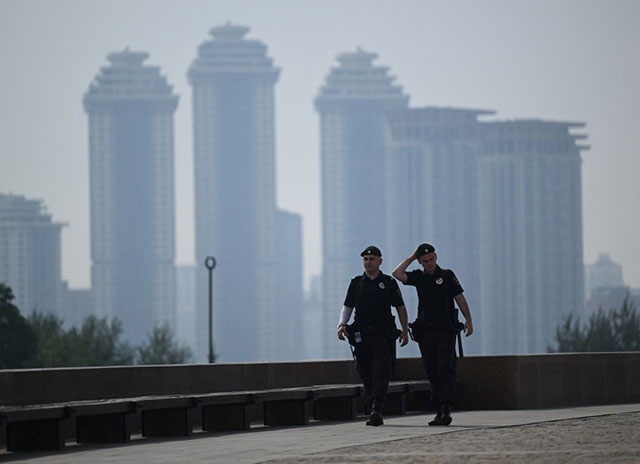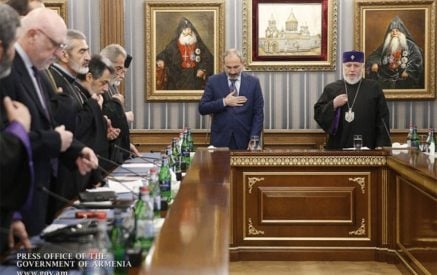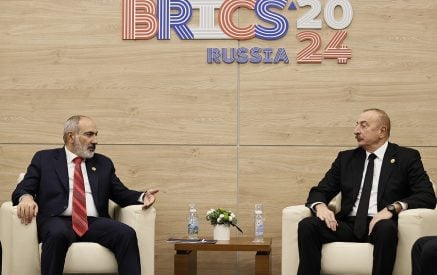Paris, August 29, 2022—Russian authorities should stop intimidating journalists and contributors to U.S. Congress-funded Radio Free Europe/Radio Liberty (RFE/RL), and let the media work freely, the Committee to Protect Journalists said Monday.
On August 17, police in Kazan, the capital of Russia’s Tatarstan republic, searched the homes of Nelya Biktimirova, Aysilu Kadyrova, Alsu Kiyamova, and Aliya Sabirova—four freelance journalists who contribute to RFE/RL’s Tatar-Bashkir service—seized their phones, computers, and passports, and took them for questioning, according to multiple news reports and an editor for Idel.Realii, a project of the Tatar-Bashkir service, who spoke to CPJ via email on condition of anonymity for fear of reprisal.
In addition, the Idel.Realii editor told CPJ that three others affiliated with RFE/RL—Elza Nabiullina, a teacher and contributor to the RFE/RL’s educational Tatar language project; Iskander Yasaveyev, a sociologist and a RFE/RL columnist; and Marina Yudkevich, a retired journalist and a RFE/RL columnist—had their homes searched and were taken for questioning on August 17.
All seven were released “after hours of interrogation” at the Investigative Committee for the Republic of Tatarstan and the Ministry of Internal Affairs’ Center for Combating Extremism, the Idel.Realii editor said.
Read also
“The main purpose of these mass detentions and searches in Kazan is to intimidate independent journalists and stifle critical voices in Russia’s Tatarstan republic,” said Carlos Martinez de la Serna, CPJ’s program director, in New York. “Russian authorities must stop harassing independent journalists by ensnaring them in legal cases and allow them to work freely.”
Authorities made all seven witnesses in a case of “justifying terrorism and violence against representatives of the authorities” and claimed that on May 11, “unidentified journalists of the Tatar-Bashkir service of Radio Liberty” published on the YouTube channel Objectiv-TV, a video showing the Russian ambassador to Poland doused with red paint on May 9 in Warsaw, which allegedly contained “statements aimed at justifying violence,” the Idel.Realii editor told CPJ.
“These insulting accusations against independent journalists and commentators are ridiculous,” said RFE/RL President Jamie Fly.
The Idel.Realii editor told CPJ that the journalists and columnists were interrogated about the workflow in the Tatar-Bashkir service, means of communication with editors, and their connection to that video.
None of the journalists or columnists had seen the video, which had “no connection” to the Tatar-Bashkir service, according to the Idel.Realii editor. The Idel.Realii editor also said that the journalists did not get their computers, phones, and passports back as of August 26, “so they will stay in Kazan.”
The RFE/RL Tatar-Bashkir service regularly covers the war in Ukraine and Russian authorities’ crackdown on the country’s civil society.
On August 23, Yasaveyev published a column about the August 17 searches and claimed they were “devoid of any specific purpose or meaning.”
“The repressive machine needs to work, it needs raw material in the form of those persecuted. Who is to be persecuted? Former and current employees of Idel.Realii have long been on the radar of the siloviki (law enforcement and security agents). Independent journalists and columnists can be easily portrayed as a threat, agents of alien values and interests,” he wrote.
CPJ emailed the Investigative Committee for the Republic of Tatarstan but did not receive any response. When CPJ called the Ministry of Internal Affairs’ Center for Combating Extremism for the Republic of Tatarstan, the person who answered the phone said they could not give any comment, claimed that “the wrong place” was called, and hung up.
Committee to Protect Journalists

























































